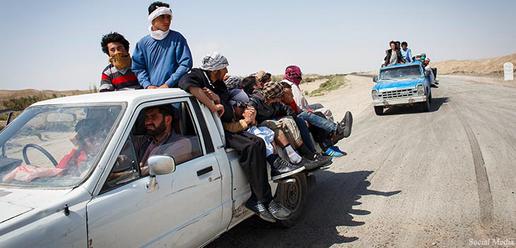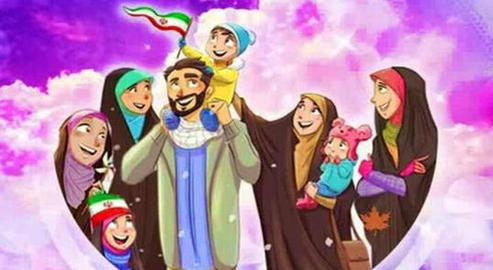This article was written by a citizen journalist based in Herat, Afghanistan, who has used a pseudonym to protect his identity for security reasons
He left the Moshkel mountain behind, but just hours after his arrival on Iranian soil, in the darkness of the night, the soldiers caught him. This 14-year-old Afghan teenager, who had moved to Iran out of poverty, had to cross the border back to his country before reaching his destination.
Two years ago, he decided to move to Iran along with several neighbors to build a better future and escape poverty and unemployment. For him, Iran was the land of his dreams. Throughout his life, Afghan boys and men had gone to Iran and sent money home to their families. He now thought it was his turn.
Nimruz province is a hangout for Afghan human traffickers who send Afghan citizens to Iran and European countries. The teenager and four of his friends – two of them the same age – had persuaded their families to find the money to pay for smuggling them into Iran. With the sale of a few sheep and some wood, there would be not much money for the trip.
He spoke with a friend who had previously been smuggled into Iran and got hold of a trafficker's phone number. When he reached Nimruz, he realized that there were lots of traffickers sending hundreds of young people and children out of Afghanistan: "At Nimruz, every hotel has a trafficker. When we arrived, the trafficker came to pick us up and took us to the hotel."
This Afghan child, along with 30 other Afghan citizens, traveled from Nimruz toward the Pakistani border.
Four Toyota cars, each carrying 35 people, traveled in convoy because of the risk of being attacked by bandits. A single local guide could transfer more than 200 people at a time.
They spent the night on a plain on the Pakistani border. At dawn, Baluchi traffickers took them across the border. There, the Afghan traffickers handed them over to Pakistani traffickers and returned to Nimruz: "The Pakistani traffickers are very cruel. They have no humanity and treat the passengers like animals."
They stayed on the plains and hillsides in Pakistan for three days. Lack of water and food was their main problem. He says the small amount of water that the traffickers brought for them had to be bought at several times the normal price. Although the traffickers had said at Nimruz that they would cover the expenses on the journey to Tehran, there was not even a single bottle of water and the migrants were afraid of dying from thirst.
On the morning of the fourth day, they traveled in the Toyota van to the Moshkel mountain that separates Pakistan from Iran. There were no Iranian border guards because of its difficult paths. "We left at six in the morning. It took two hours by car to reach the mountain. [The trafficker] got us out of the car. There were around 150 of us. There were a lot of children, some of them even younger than me."
Near the mountain, the Pakistani traffickers warned them to be cautious when crossing and told them that no one should be left behind. They also reminded them that it would be their own responsibility if they fell down the valley. They warned them that everyone must obey the traffickers, otherwise they would be physically assaulted.
The Afghan teenager and his companions walked for more than eight hours to reach Iran after crossing the mountain. The lack of water and food had left him breathless. The traffickers warned him repeatedly along the way and shouted at him that if he was left behind, he would become prey to wolves and wild animals.
Arriving at Saravan, they stopped at a valley to rest for a while. He could no longer walk because of the fatigue in his legs and said that if there had been no transport, he would not have been able to continue.
Two hours later, Toyota vans arrived to pick them up so that the Iranian traffickers could take over from Pakistani traffickers. The cars traveled at the highest possible speed, with more than 30 migrants in each van: the passengers were at risk of falling out of the vehicles at any moment. The traffickers did not even turn on the lights at night to avoid being caught by the patrol guards.
Six hours later, they reached Khash. The migrants spent the night in tents. At 3am, their tents were besieged by Iranian guards: "We suddenly heard shooting. They captured [everyone] and transferred them to the camp."
The security forces kept them in Zahedan camp for two nights. They were forced to stand in the sun for half a day to learn a lesson not to travel to Iran illegally. He says the situation at Zahedan camp was lamentable and the food was insufficient. He was then taken across the border with his other companions back to Afghanistan.
After arriving at Nimruz, he stayed for two days to get acquainted with other traffickers. One smuggler told him that there were migrants who were deported from Iran several times, but did not give up and eventually reached Tehran. The trafficker guaranteed to take him to Tehran for the price of 2 million tomans (US$165) and insisted that those who worked with him in Pakistan and Iran had a wealth of experience in sending Afghans to Iran.
When he considered the economic situation of his family, the teenager prefered to run away and accept the trafficker's offer.
Luckily for him, perhaps, he arrived in Tehran on his second trip, after enduring a 15-day journey. He thanked God that after several hours of walking, enduring thirst and starvation in the plains and deserts, he finally arrived there alive.
Behruz Mohammadi, citizen journalist, Herat
Related Coverage:
Afghan Workers in Iran are Abused and Exploited – But Relatively Safe
visit the accountability section
In this section of Iran Wire, you can contact the officials and launch your campaign for various problems

























comments